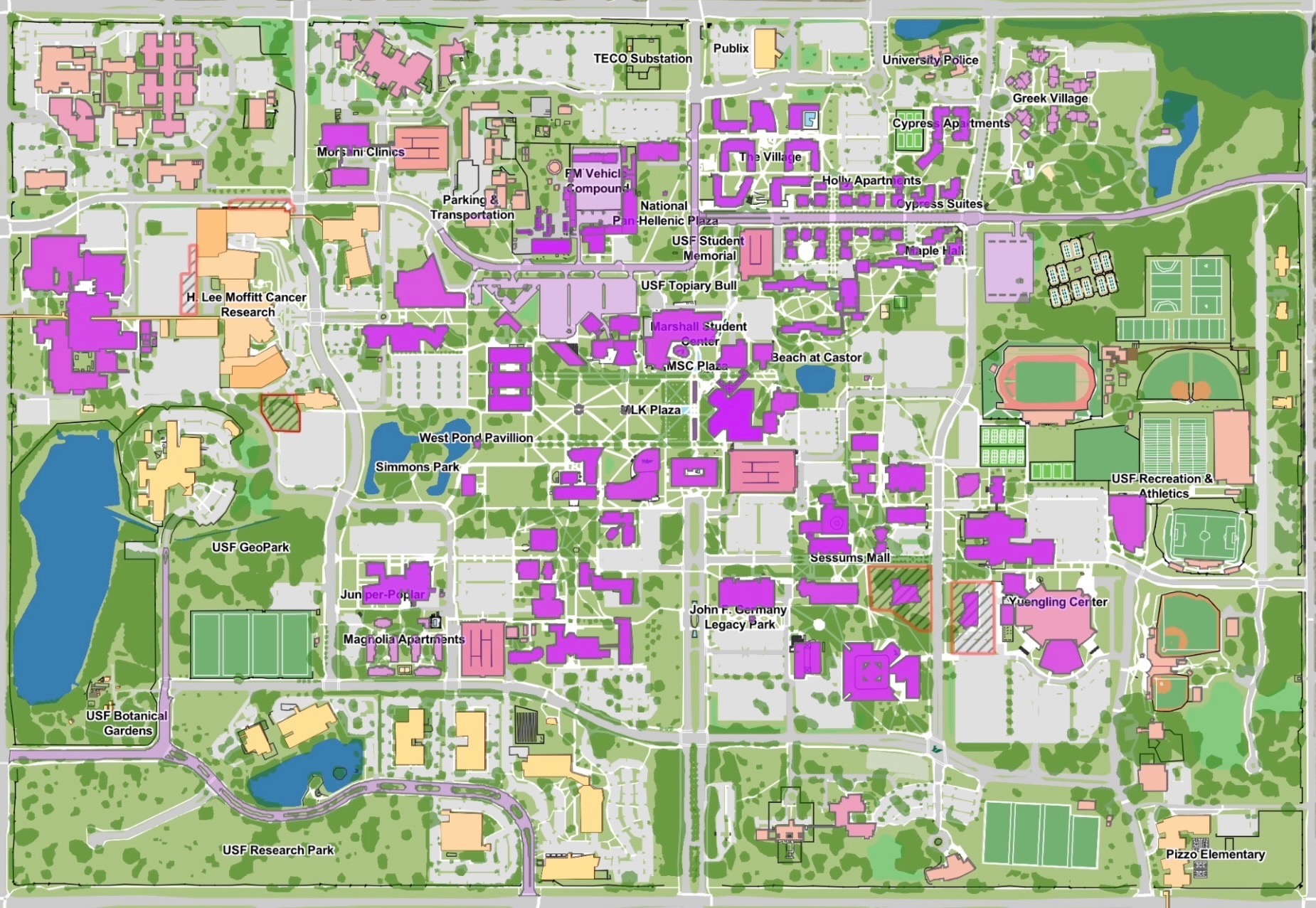Deferred maintenance projects to be completed through 2026

USF will complete 87 on-campus deferred maintenance projects by the end of 2026 totaling $72.8 million, according to Vice President for Facilities and Public Safety Operations Carole Post.
Funding was received from the state per House Bill 5001, signed on July 1, as part of the Federal American Rescue Plan Act.
Some projects include replacing fire alarm systems, repairing roofs and redesigning and renovating the USF water tower.
Planning for the projects began spring 2022, but Post said momentum will pick up beginning this summer across all campuses, where larger and more noticeable projects will start work. Construction must be completed by Dec. 31, 2026 as stated in the bill. There are 23 projects expected to begin work by the end of this year, and 28 are planned to start in the first quarter of 2024, Post said in a Feb. 14 presentation to the Board of Trustees.
The total cost of this initiative is allocated to satisfy the university’s top needs, with $28.983 million going toward building systems enhancements, $26.525 million covering utility costs and $7.619 million being applied to fire safety improvements, according to Post. Work to improve the building envelope, or the separation of the interior and exterior to control a building’s climate, will receive $6 million in funds, and roadway work will obtain $3.65 million of funding.
The funding received will cover 18.5% of the university’s current deferred maintenance needs, according to Post’s presentation. Overall, the university would need $394 million to address all deferred capital renewal needs. If it had received this amount, USF would then need $45 million annually in order to maintain a state of good repair. Previous annual investments have averaged around $5 million.
Roofing repairs will see $5.9 million in allocated funds across seven projects, according to the presentation. A total of 25 roofs are 30 years or older, 22 of which are on the Tampa campus and three at St. Pete. The most prioritized locations for roof maintenance include Cooper Hall ($1 million) and the John and Grace Allen Building ($1.6 million).
A dozen projects will focus on repairing heating, ventilation and air-conditioning (HVAC) systems. These projects will cost $17.3 million, according to the presentation. A total of 132 HVAC systems are dated 30 years or older.
Fire alarms will be replaced in 16 different buildings, including Student Services, the Education building and Engineering Building III, according to an interactive map detailing the deferred maintenance projects.
In addition, about $2 million will be directed toward elevator safety upgrades, according to the map.
Renovations on the interior of the USF water tower is expected to be completed by July, according to the presentation. The tower will also be repainted and redesigned to reflect a more modern and prideful university, Post said.
As work progresses on projects that directly affect power or water, such as the water tower, Post said the team will communicate with the Office of the Registrar to relocate students and faculty directly affected by temporary power outages or low water pressure.
“When [work on the water tower] gets done, we’ll be having periods where we’ll have some temporary bypass of the water tower,” she said. “We’ll never not have access to fresh water. It’s also water that’s used for sprinklers in case of a fire, so all of that we’ll always have access. But there might be periods where there could be lower water pressure at a sink or in a bathroom or something like that for a temporary period of time.
“Also, when we start doing HVAC and some of the power improvements, we would likely just take some classrooms, maybe meeting spaces and other areas that students might use… out of service rather than have people in them and not have the proper air conditioning. We would redirect those uses to alternate spaces during that time.”
Post said even with a strong team, taking on 87 projects in addition to their standard roles and work has been challenging at times.
“Every day there is work being done around the hundreds of buildings and facilities and rooms. We don’t have any additional people or manpower, so we’re kind of juggling what we do every day with adding this additional work,” she said.
Another challenge the team is facing is receiving materials in time, according to Post. Roofing materials are expected to take 12-14 months, electrical equipment takes 12-18 months and fire alarm system components will take about 6-8 months.
Despite these inevitable complications, Post said the team is excited to get to work to strengthen campus infrastructure.
“[We’re] excited to be able to make some transformational improvements…we have a really strong team. We have a detailed plan. We report on it biweekly through our leadership group so that we’re holding ourselves very accountable,” she said.






